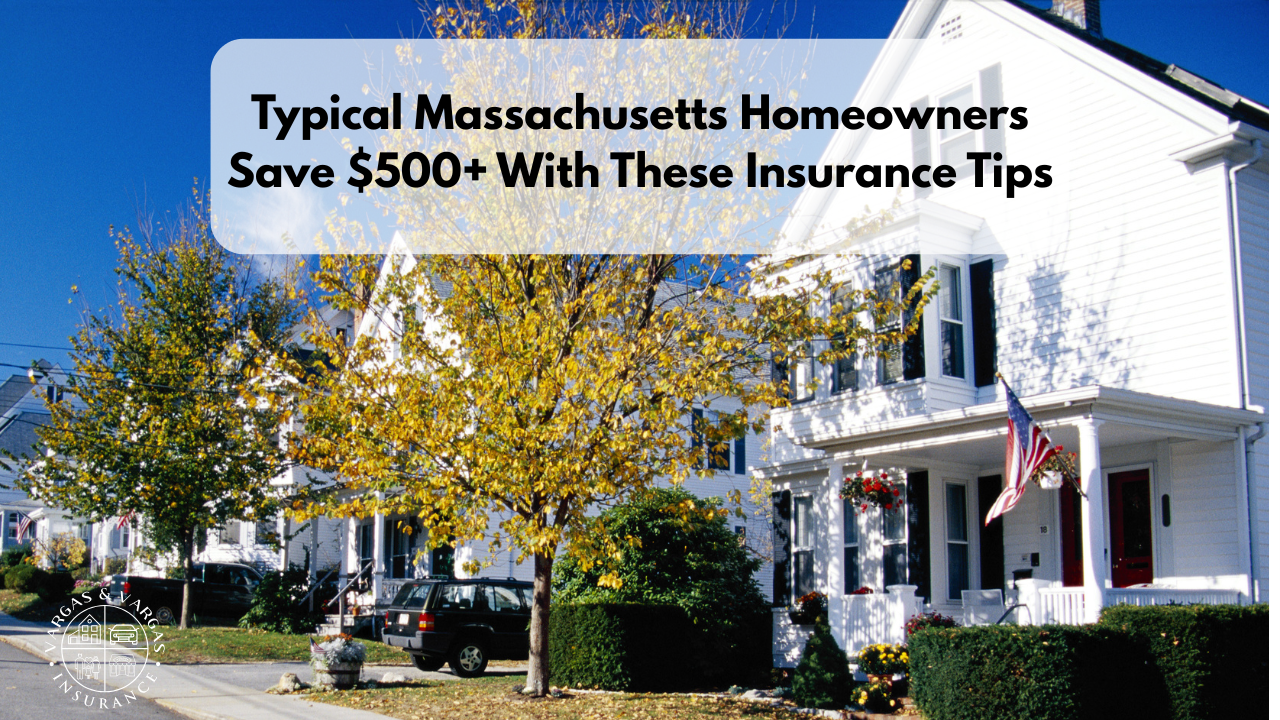14 Ways to Save Money on Homeowners Insurance (Massachusetts Homeowners Save $500+

We often hear this question: Why does homeowners insurance seem to get more expensive every year?
And how can Massachusetts residents reduce their premiums without cutting corners on coverage?
If you've ever looked at your home insurance renewal and thought, "Why did this go up again?", you're not alone. Many Massachusetts homeowners are overpaying by hundreds — sometimes more — without realizing there are practical, proven ways to lower their costs.
In this article, we’ll walk you through 14 strategies that can help you save $500 or more on your homeowners insurance — without sacrificing protection or peace of mind.
- Bundle Your Policies
This is often the biggest savings opportunity. When you combine your auto and home insurance with the same provider, discounts can be significant — sometimes up to 25%. - Raise Your Deductible (Strategically)
If you increase your deductible from $500 to $1,000, you could lower your premium by 10–20%. Just make sure you have the funds set aside in case of an emergency claim. - Improve Your Home Security
Insurance carriers love it when you make your home safer. Installing monitored alarms, cameras, deadbolts, and smart home devices can earn you discounts. - Maintain a Good Credit Score
Yes, credit matters. In Massachusetts, your credit isn’t used directly to set rates, but carriers may still use credit-based insurance scoring as part of your risk profile. - Stay Claims-Free
Every claim you file stays on your record. A clean claims history over five years often leads to loyalty discounts or lower premiums. - Shop Your Policy Every 1–2 Years
Loyalty doesn’t always pay. Rates can fluctuate due to underwriting guidelines, so reviewing your policy every couple of years ensures you’re not overpaying. (We do this for you automatically) - Install a Water Shutoff System
Water damage is one of the costliest types of claims. Systems that detect leaks or automatically shut off water can lead to discounts of 5% or more. - Review Your Coverage Annually
Do you have too much personal property coverage? Are you paying for riders you no longer need? An annual review helps optimize protection without waste. - Ask About Available Discounts
Not all discounts are applied automatically. Ask your agent if you qualify for senior, new home, non-smoker, paperless billing, or paid-in-full discounts. - Upgrade Your Roof or Electrical System
Newer roofs and updated electrical panels lower your risk profile—and many carriers reward those improvements with premium reductions. - Avoid Small Claims
Filing for every minor issue can trigger rate hikes or dropped coverage. Sometimes it pays to handle smaller repairs out of pocket. - Work With an Independent Insurance Broker
Independent agents compare policies across multiple carriers to find you the best coverage and price—something captive agents can’t do. - Join a Group or Association
Some insurers offer group discounts through employers, alumni organizations, or unions. Ask about affinity programs.
Affinity Group / Program Eligible Members Discount on Homeowners Insurance Notes/Insurer Examples UMass Boston Alumni Insurance Program UMass Boston alumni Varies (auto/home discount) Farmers, Liberty Mutual UMass Amherst Alumni via AMBA / USI Affinity UMass Amherst alumni Group rates on home & auto USI Affinity program Northeastern Alumni Insurance Discount Northeastern University alumni Discount on home and auto Liberty Mutual USI Affinity Collegiate & Alumni Programs Alumni of ~200+ colleges/universities Group rates on home & auto Multiple carriers Travelers Insurance Affinity Discounts Employer groups, credit unions Home & auto discounts Call Travelers to check eligibility GEICO Organizational Discounts Members of recognized associations Home & auto discount offers Check MA‑specific list via GEICO MAHA HomeSafe Program Graduates of MAHA Homeowner 201 or Condo 202 7–10% discount with participating insurers MAHA‑partner insurance companies, like: Arbella, Harleysville Worcester, Commerce/MAPFRE, Liberty Mutual, Quincy Mutual, Safety
14. Choose the Right Insurance Company
Not all carriers rate risks the same way. A company that’s expensive for your neighbor might be cost-effective for you. Rates vary widely—shop smart.
Final Thoughts: You Can Save Big—But You Need to Know Where to Look
If you’re like most Massachusetts homeowners, chances are you’re leaving money on the table when it comes to your homeowners insurance. By taking even a few of the steps above, it’s not uncommon to save $500 or more annually.
Remember: Insurance is about protecting your most valuable assets—but it shouldn’t drain your wallet in the process.
What to Do Next
Are you wondering which of these savings apply to your current policy? Or maybe someone you know could use a fresh look at their insurance options?
📩 Let us help. Reach out and let’s see how we can save you—or someone you care about—money on home insurance today.


